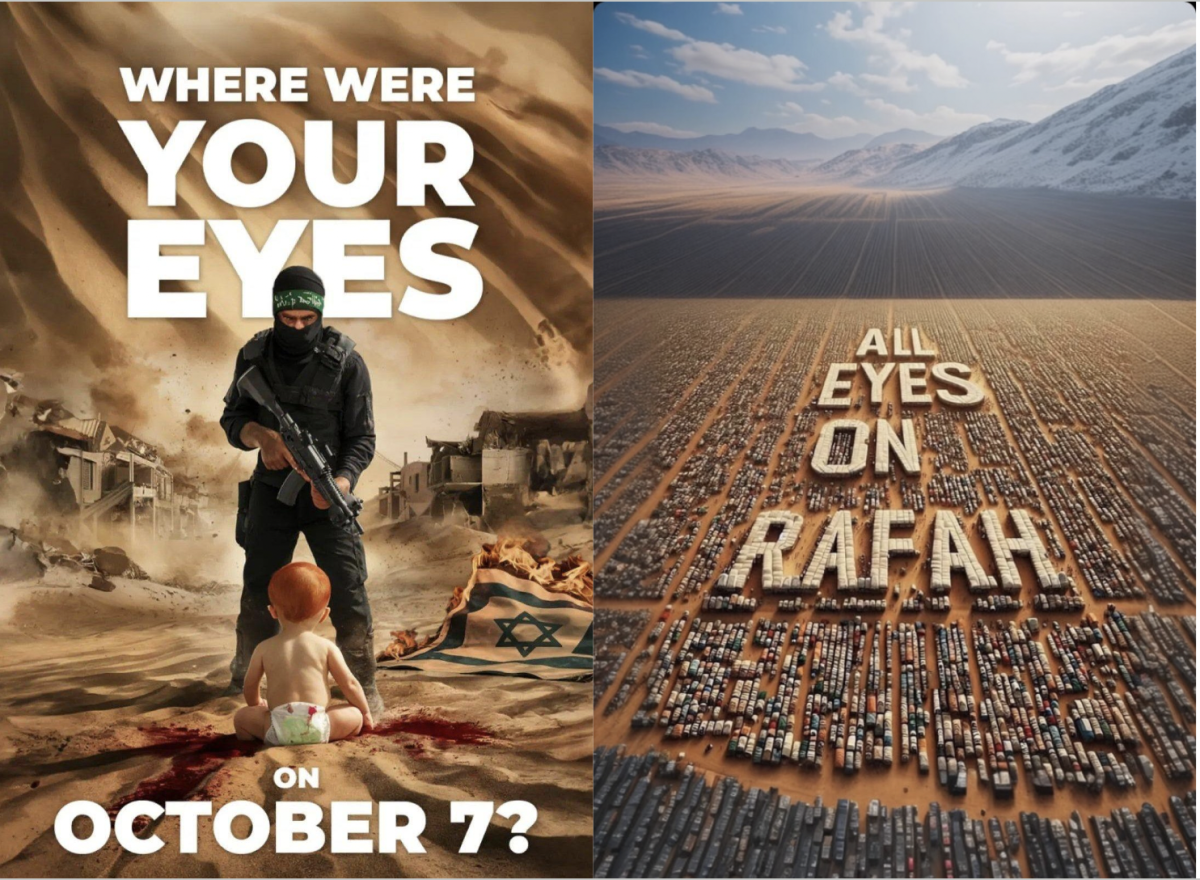Instagram has recently been flooded with stories about people keeping their eyes on Rafah, but what does this mean? Through social media platforms, it’s easy to spread misinformation, yet Israeli celebrities fight against this prolific spread of false news. On May 7 Israel began an operation into Gaza through Rafah as a way of stopping the war and finding the hostages from the inside. Since then, well-known influencers have been posting non-stop about keeping their eyes on Rafah. The real question is: why does this involve them?
An influencer, by definition, is a person or thing that influences another. By posting about the current situation without proper research or understanding, influencers can negatively sway their audience. It is understandable to think they might show support for the cause simply to gain followers and become more popular, but why do they not seem to understand the conflict if they are the ones that post about it? Their lack of knowledge can lead to the spread of violent propaganda in the media. An example of this would be the red hand pin that many celebrities wore during the Oscars season as a call for a ceasefire, but the pin’s origin is much different. According to the Washington Examiner, the pin symbolizes the 2000 lynching of two IDF reservists, Vadim Norzhich and Yosef Avrahami, who were killed in Ramallah. Their killer raised his Israeli-blood-soaked hands as a way to showcase his murder of the two men. This fact seems to be overlooked by many wearers as they continue to don the pin in belief that it supports a ceasefire.
“All eyes on Rafah” posts are not much different in comparison to the pin. Celebrities have no clue about what they are actually posting, as shown in the previous example. Adding on, the “All eyes on Rafah” pictures being posted is AI generated and has no real connection to Gaza (there are no snowy mountains in Gaza). When these influencers post the AI photo, they do not add any explanation to what is occurring in the location it is meant to be set in. Yet again, this allows the spread of misinformation throughout the media and leads to ignorance on the topic.
After the release of this post, many Israeli celebrities responded with come-back posts such as, “Where were your eyes on October 7th?” This post highlights the hypocrisy of those who focus on Rafah now but who had ignored the tragic events of October 7th, , the day that ended many lives. Instead, they would rather post a photo of words that cannot even begin to describe the war.
Overall, influencers who guide people towards misinformation should not be considered influencers at all. Though they technically fit the definition, they present themselves as misinformed, leading their audiences to form inaccurate conclusions. If you post, know what you are posting about.














































































































































